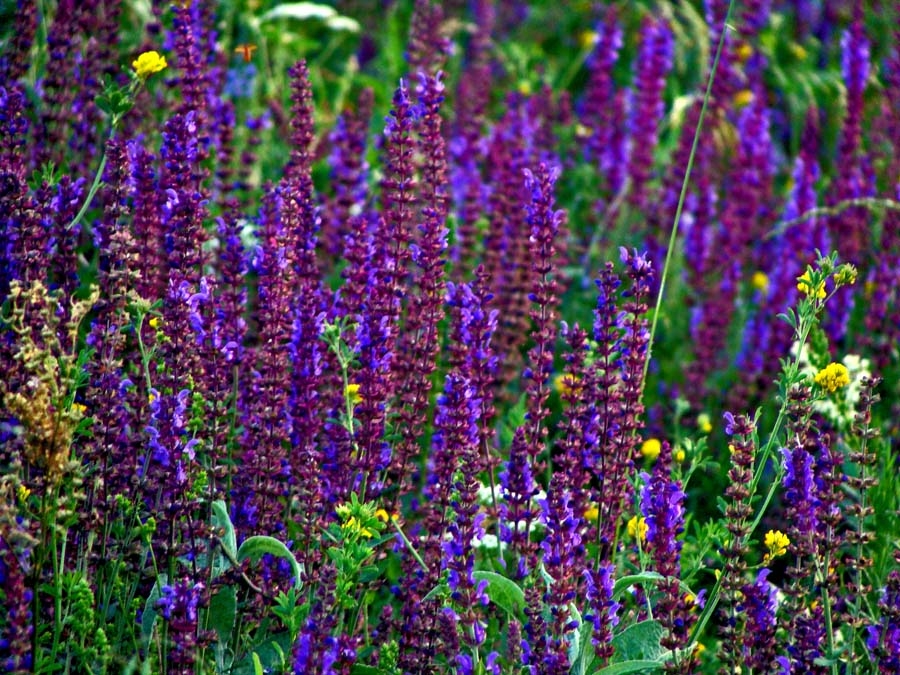
On Paternal Saturday begins the cycle of holidays, also known as Trinity grandfathers - is the main memorial day of the year. Spirit of this holiday is caused by such folk beliefs as: the belief in the magical properties of plants and the struggle with the Evil One, honouring and respect of the dead during the change of seasons.
A characteristic attribute that distinguishes the Trinity from the other holidays, is a custom to hang green branches of lilac, ash, linden, walnut, willow on the gate pillars, gates, doors, windows, and icons. Even today it is respected that the custom according to said on this day children should go and pick the flowers of thyme and gentian in order to cover floors in the house. Some flowers are sanctified in church, and then they are kept near the icons. Sometimes, during periods of heavy rain and hail, people throw these flowers into the yard.
The custom of decorating houses and farms with branches of greenery is a symbol of fertility; it means to protect them from evil fairies - Rusaliy. Greens decorate houses in the cities as well.
One of the main traditions of this holiday is a celebration in the honour of those that have died. Moldovans go to the cemetery with a memorial gifts, as well as on Parent's Day. It is normal to distribute traditional wooden and clay vessels and pottery like that of: bowls, pots, jugs, there is milk with noodles; jugs and cups with wine and water. Attached to the handles of these vessels are branches of basil and roses with walnut leaves. Memorial gifts are given to relatives, neighbours, and especially children.
Some elders have recalled nice traditions where herbs picked on the Trinity holiday, are sprinkled into the river, and after they are given to cattle, it was done to protect animals from diseases. Even to this day, the custom according to which a week after Trinity, all the herbs and green branches, which decorated houses, after sunset are carried away to the river. They all should be thrown into the water, saying, "Must be rain, must be bread, we must be healthy for all next year up to this day", this is done so that Rusaliy is moved on away.
According to the folk mythology, Rusaliy - are supernatural creatures taking the mind off from humans. They are walking on the earth and sing, but no one sees them. Usually, herbs are picked before the holiday of Rusaliy. On this holiday wormwood is tied to a belt, boys and girls whip each other with this wormwood when they met each other, this is a kind of protection from Rusaliy magic spell. Women and girls pour over themselves water to be loved and healthy. On this day, it is better not sleep so as "Rusaliy do not take", consecrated linden branches will "help with deafness."
In some villages within Moldova there is a tradition of cleaning springs and wells on Rusaliy holidays. This is done after Trinity, when the roses bloom, so the custom was named Rosalie. This tradition of cleaning springs and wells appeals for renewal, clean with descent of the Holy Spirit. Housewives cook special dishes for this custom: cabbage rolls, wrapped in leaves of horseradish and coltsfoot, rolls with potatoes and cheese, pies with greens etc.
Holidays of Rusaliy and Trinity are dedicated to the memory of the deceased, the worship of vegetation and water.
Eve today in the villages of Moldova on the Holy Trinity Holiday the youth organises festivals and dances in folk traditions. In this regard it should be noted and supported the organisation of the National Tourism Festival "Trinity" in the village Domulgeny -Floreshtsky area. On 25th May 2010 this festival was held for the first time, it was an ethno-folkloric contest, called "Traditions from Easter to Rusaliy." Various folk ensembles participated in the festival. Experts in traditional Moldovan cooking and craftsmen were able to show their talents. This event encourages the development of agro-tourism in our country.
Keeping and respecting the customs and rituals associated with these holidays allow Moldovan people to preserve their identity.






